
Legal Notices & Disclaimers
This book is only meant to give you information; it is not meant to be taken as professional advice. The contents herein are based on the views and opinions of the author and all associated contributors.
Although the author and all related contributors have made every attempt to give correct and current information in this publication, it is apparent technologies change quickly. So, the author and all other connected contributors reserve the right to change the content of this book as new information comes out. If this text has any mistakes or omissions, the author and/or all connected contributors are not responsible for anything.
The author and all other contributors say that they are not responsible for any financial, legal, or other problems that readers might have because of how they use the materials.
Before taking any action, it is the reader's personal obligation to consult a specialist.
No assurances, either financially or otherwise, can be accurately offered because the reader's results will vary depending on their skill level and unique perception of the information. As a result, no guarantees are made.
Without the publisher's written permission, you can't copy or move any part of this work or the files that go with it, whether electronically or in another way.
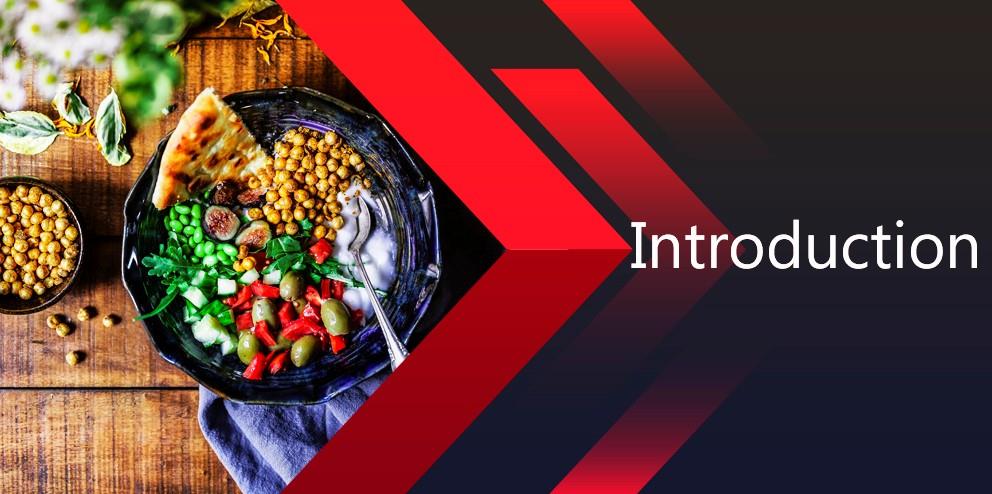
It seems that more and more every day we are hearing something about the vegan lifestyle. Most of us probably know somebody who is a vegetarian or a vegan, or who simply seem curious about the idea of going meat-free. What exactly is the appeal?
People go vegan for a number of reasons, most of which are very personal to them. Of course you may find those who are very emotionally connected to their cause and seek to inform and educate others on cruelty-free procedures so that their message can be heard. Advocates of a vegan lifestyle can get a bad rap, probably because it seems like a very extreme adjustment and some of the ways animals are treated can be truly heartbreaking. Some vegans may take it upon themselves to try and force others to care or understand in ways that can actually really turn the modern masses off of the message.
That’s because our diets are something personal to us. We all have the right to choose the way we eat, and it is a privilege that in this day and age we have the resources available to us to actually cut meat out of our lives safely. Ethical practices for raising certain animals in the agricultural industry have come about because of the advocacy of groups that are passionate about animal welfare, and for those of us who are interested in veganism but not quite ready to make it an active lifestyle, that’s okay. You can still make informed choices about where you get your food from, and what it takes to get from point A to what you find on your plate.
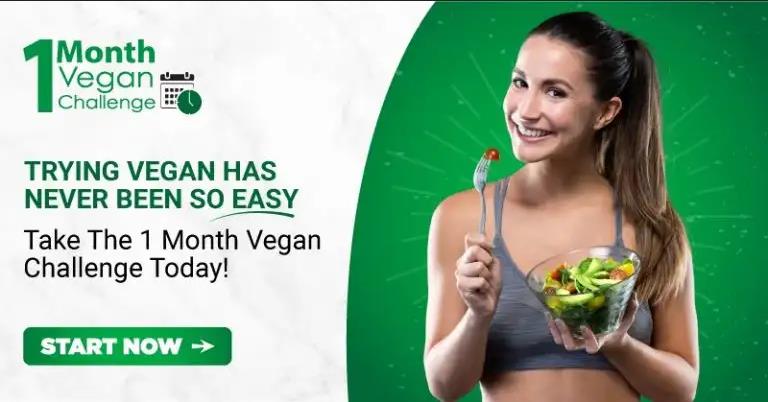
Whether you are reading this book to learn more about veganism and what it means, or you are seriously considering a vegan lifestyle and want a guide to help to show you the way, this book will help you to learn the basics of going vegan and how it can benefit not only your body and mind, but also the world around us. Let’s get started!
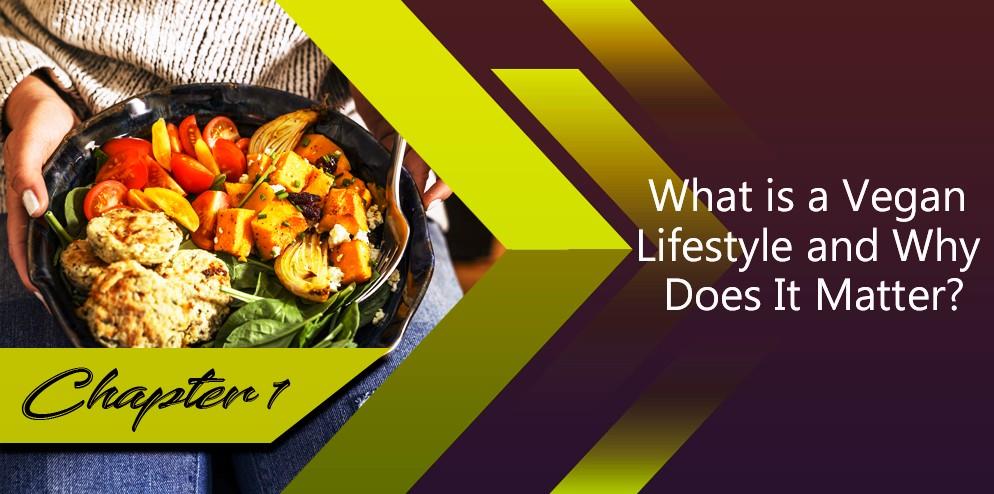
A lot of people are unclear about veganism and what it stands for. Many of us have an idea in our minds about what it could mean. Does it mean becoming militant about animal rights and lecturing the people closest to us about their unethical food choices?
Does it mean living a more peaceful lifestyle that is automatically more healthy because we are supposed to be eating more fruits and vegetables and less of the red meat that has been linked with heart disease? Does it mean cutting out every single food associated with animals, or just some?
Maybe these questions can seem silly, but they are valid. A vegan lifestyle is something that is often unfamiliar to people and so it is natural to wonder about it. This book will help to guide you through all the questions you may have and provide tools and resources for those questions the guide may not address.
Chances are if you have asked, someone else out there has as well, and has found the answers you are looking for!
But let’s start with the basics. A vegan lifestyle is one in which the person undertaking it is conscientious about the origins of the products they use and the foods that they eat. A vegan views the world with a particular passion to be as animal-friendly as possible. The unfortunate truth about the world is that some practices utilized in order to feed the masses are inhumane and can cause needless suffering to animals. Vegans aim to try and stop that suffering by refusing to support the industries that allow it to exist in the first place.
For example, a vegan who is living the vegan lifestyle will likely do a lot of research before purchasing any products. They will most likely want to know where the product’s origin is located and ensure that no living creature was needlessly harmed or suffered for the making of the product. They want to live with a clear conscience. Many vegans are also humanitarians, who will go as far as researching their clothing and coffee to make sure that the businesses they support are not causing harm to less fortunate people or communities. How far you take your lifestyle is up to you, but ignorance is a choice that can be difficult to live with.
To answer a few other questions, vegans do not eat meat at all. They also do not eat any byproducts of animals. Animal byproducts are foods that are produced with animals involved, such as milk, cheese, eggs, and other dairy items. They choose not to use animal byproducts because practices can often be cruel. Take the egg industry, for instance. When the baby chicks are born, they are sorted into categories of male and female. The female chicks are taken to farms, where they are often fed growth hormones or forced in pens that are lit with artificial daylight 24/7 so they will lay eggs constantly. The male chicks are disposed of in dumpsters, left there to starve to death or suffocate.
This is an inhumane practice. It doesn’t take much to understand how horrifying these conditions are. Vegans do not want to support anything that can cause harm and suffering of this caliber. They do not want to support factory farms or dairy farms where animals are mistreated and not allowed to live their fullest, healthiest lives. The goal is to show the rest of the world that such mistreatment does not need to happen and will not be tolerated. Money talks, and vegans use theirs to support businesses that align with their personal moral code.
It may seem trivial to some people. They may say it’s pointless, because there is no way we will ever change the world enough that people will voluntarily give up their diet choices in lieu of veganism. The animals will still be slaughtered, everything will go on as it was before because there will always be a high demand for meat. And in ways this may be true. But even if the whole world continues to eat meat and support inhumane practices, the choices you make will always make a difference to the animals you chose not to eat that day. And that’s what veganism is all about.
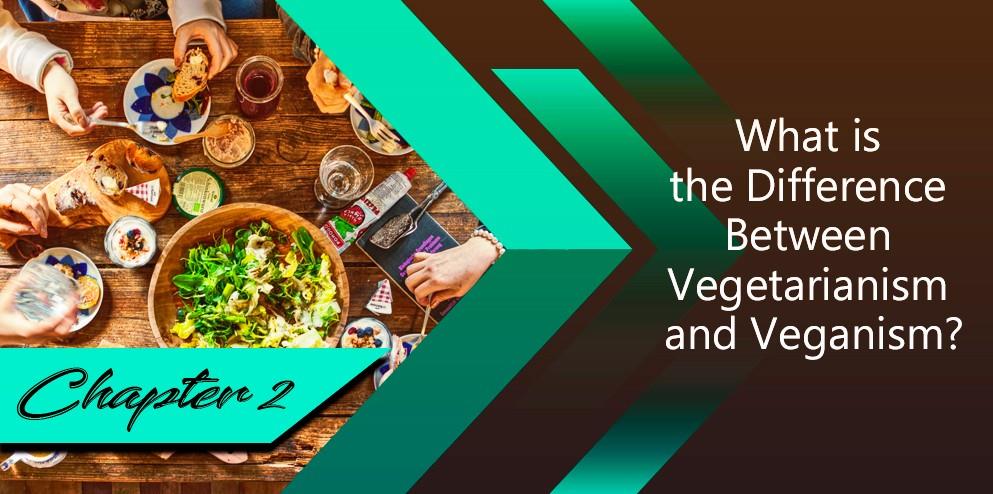
A common question that many people have is, what is the difference between veganism and vegetarianism? A lot of people may get confused and think that they are the same thing, when in fact they are vastly different.
To begin with, there are several different categories for vegetarians. Lacto-ovo vegetarians include lactose and eggs in their diets. However, they will not include meat products or poultry into their diets. Lacto vegetarians will not include eggs in their diets, but they do consume dairy. They also prefer not to eat other animal products. Then we get to vegans, who will not eat any egg or dairy products, or products that have utilized animals in any way whatsoever.
There are many people out there who call themselves vegetarians even though they will occasionally eat meat here and there. Some may not consider eating seafood to be a meat, so if you are going vegan you may find that you get the question, “Do you eat fish?” a lot. Just do your best to be polite when discussing your diet choices. Many people are unfamiliar with the vegan lifestyle, and the more compassion you show to them for being curious, the more likely you will be to receive compassion in return. Isn’t that what going vegan is all about?
A lot of people don’t know the difference between vegans and vegetarians, so rather than asking if a food is vegan, which may cause people to answer in the mindset of “no, there isn’t any chunks of meat in this,” versus, “No, there are no animals or animal byproducts present in this dish.” That can cause some strife, not just for the vegan but for the person who is attempting to be hospitable.
Sometimes it’s just easier to say that while you appreciate the good intentions, you are going to be providing your own foods at certain social gatherings or events, that way there is no mistaking what it is that you are putting into your body.
A person who thinks a vegan diet and a lacto-ovo vegetarian diet are the same thing can easily violate a vegan’s boundaries by feeding them things that may have cheese or dairy in it because they misunderstand the meanings of the words or they simply haven’t looked into it well enough. What is a lacto-ovo vegetarian you may ask? A lacto-ovo vegetarian is someone who does not eat meat, but who does eat animal byproducts such as cheese and eggs. They have not cut out dairy from their diets the way a vegan would. It’s an easy mistake to make, especially for those who are uninformed.
There are other types of vegetarians as well. Some are called ovo-vegetarians and they eat only eggs and non-meat products. Lacto-vegetarians don’t eat meat or any eggs or egg products. And then of course there is the flexitarian, who eats a mostly vegetarian diet but every so often will include meat in their diet. Another thing a lot of people consider vegetarianism is pescatarian, which actually means a vegetarian diet with the exception of eating fish. That is probably why a lot of people think that being vegan or vegetarian can mean that you still include fish in your diet. So this may be a question you get a lot once you have adopted a vegan lifestyle.
There is no shame in any way you choose to live your life or the diet that works best for you and your body’s specific needs. It is important not to shame others for the way they live their lives, especially if you want to begin to create a more tolerant world that is accepting of the ideologies veganism often stands for. By being receptive, we create a more receptive world that is more likely to listen to our point of view in a way that doesn’t feel threatening to them so they may choose one day to try it for themselves and see how it feels. Even just a single meatless Monday can be a huge step in helping to eliminate needless suffering in animals.
That isn’t to say you have to associate with people who make you feel ashamed to live the way you choose to live and for the way you eat. Treat others as you wish to be treated. And just as no vegan wants to be in the position of the suffering animals, neither do they want to be in a toxic atmosphere where people are making them feel ashamed for the choices they make. If you find that you are in a toxic environment then you would do well to find a way out as quickly as possible so you may begin to live your life in a healthier way.
Once you have decided what label best fits you in terms of your diet, it will be easier for you to explain what your diet is like to those who matter the most to you. Once they understand your specific limitations then there is a high chance they will do everything in their power to accommodate you, which can be a great thing.
Now that we have cleared up the difference between vegetarianism and veganism, let’s move on to applying it to our lives.
Don't Make Another Smoothie Until You Read This...
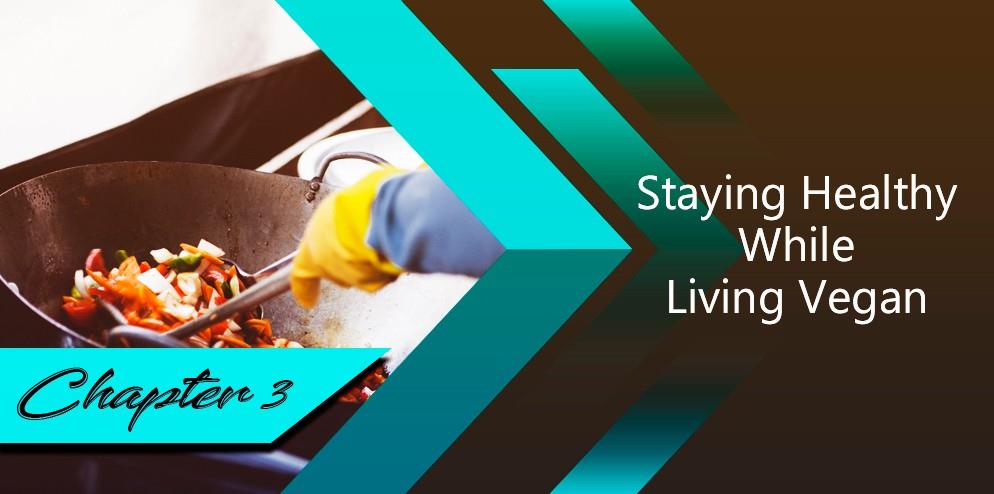
Most people assume, wrongly, that a vegan diet is automatically going to be very healthy and good for you. Unfortunately, that is not necessarily the case. If you are eating vegan, sure, you are probably going to be getting more vegetables and fruits and leaner protein sources, but that is only if you are making an active effort to make sure your diet is including the things that are the best for you to eat.
Some vegetarians and vegans get away with eating a carb-filled diet that simply includes cutting meat out and still eating the unhealthy Standard American Diet.
This diet is also referred to as the “SAD” diet, because it is severely lacking in nutritional content and is high in saturated fats and other things that are detrimental to your body. They think that by living without meat, they are still making healthy choices for their bodies.
Unfortunately, that really isn’t the case. Exempting meat from your diet doesn’t automatically make you a healthier person. In fact, if you aren’t paying attention to your diet, it can become very nutritionally deficient. There are certain nutrients that vegans have to pay close attention to. They need to make sure that they are getting these vitamins and nutrients from sources outside of meat, otherwise their bodies can begin to slowly suffer.
Vitamin deficiencies are no laughing matter. The most important vitamins and nutrients for vegans to pay attention to are iron, vitamin B12, vitamin B6, and omega 3 fatty acids. It would also help to make sure you are getting enough protein from plant sources, such as soy. Diets lacking in animal proteins and other animal byproducts can easily cause deficiencies that, over time, can lead to anemia and heart problems, among other things.
It is very important for vegans to plan out the ways they will get foods that are fortified with these minerals. You can look into supplements, but of course eating these things in foods is the easiest way for your body to absorb nutrients. For example, rather than taking an iron supplement, which can sometimes cause gastrointestinal discomfort or constipation, you might instead look into foods that are high in iron, or fortified with iron so that you know for sure that you are getting all of the vitamins and minerals your body needs to remain as healthy as possible on your new diet.
It is a huge mistake to assume that simply having the will to cut meat out of your diet is going to equate to a healthy lifestyle.
However, it is true that cutting meat out of your diet will help you lose weight somewhat drastically, depending on your body type. Still, you would of course benefit from a healthy lifestyle that includes exercise and a good grasp of the vitamins and minerals that you are getting. Talk to your doctor about getting a physical and bloodwork done to keep an eye on the nutrients that you may or may not be deficient in. That way, you will always be ahead of the game and prevent yourself from any potential deficiencies that could affect you later in life.
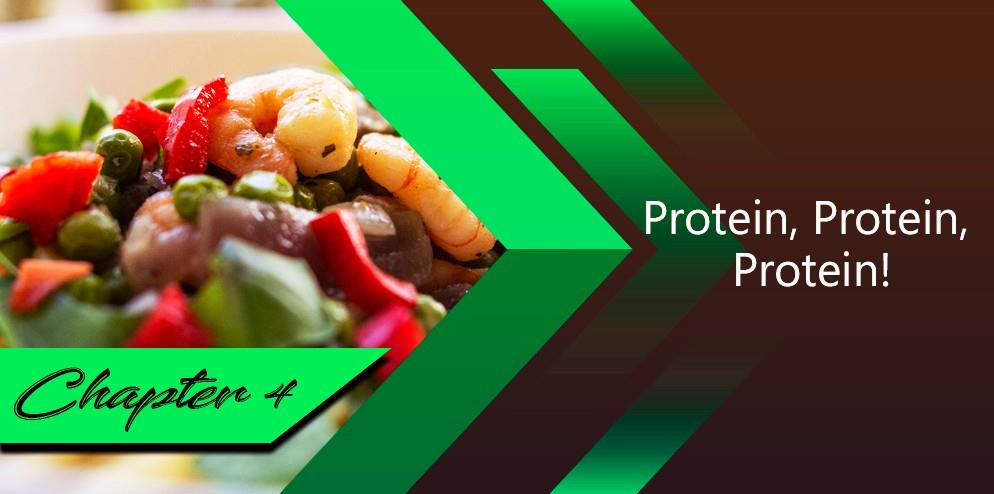
Most vegans loathe the protein question, although it is fair. It can be difficult to build strong, healthy muscles without enough protein in your diet, and a lot of people have an image in their minds of vegans being sickly and feeble because they are simply lacking in the nutrients that are abundant in a diet that includes meat and meat byproducts.
Fortunately, there are many sources of protein that are not necessarily meat-based, and as a vegan it is important to know what they are. Some of these foods may end up being an acquired taste, but they do the trick none the less.
One popular protein choice for vegans is seitan. Seitan is certainly filling, and is made primarily of wheat gluten. You can make it for yourself or buy it pre-made and flavored. Both options are good, and can create very hearty meals that are similar to the kinds of meals you have with animals on the plate, minus the cruelty!
Tofu and other soy products contain protein as well. While many people do not like the taste of tofu, others find that soy products can be very similar to the foods they are missing when they are prepared well and flavored properly. Tofu is like a blank canvas, and when given the proper treatment, it can emulate several different types of dishes. That is what makes it a very popular choice for meat substitutes. Eventually you may find that you get used to the flavor of soy products and that you hardly miss meat at all!
Another source of protein that many people overlook is plant proteins. Plant proteins can be found in many vegetables, including but not limited to leafy greens, edamame, and green peas. Getting a lot of these foods in your diet can be incredibly beneficial for any vegan.
Significant sources of protein include beans and lentils, chickpeas, hempseeds, and several other grains as well. Spirulina can also contain nutrients that are crucial for vegans, including protein. Spirulina is from the sea, and is made of seaweed concentrated often into a powder. This can make a great addition to morning shakes and smoothies.
Tempeh is another good source of protein and a good, filling option for those who want to live on a cruelty free plant based diet. While the taste may be unique at first, it can be a great substitute for those hearty foods that you may begin to miss when going on a plant-based diet.
There are all kinds of sources of protein for any vegan who wants to look for them. It can be very important to include this essential nutrient into your diet, but if you are doing well at keeping up on your nutrition and including these sources of protein in with the foods you eat on a daily basis, then you should have no issue in gaining muscle and maintaining proper health!
Your Ultimate Go-To Master Game Plan
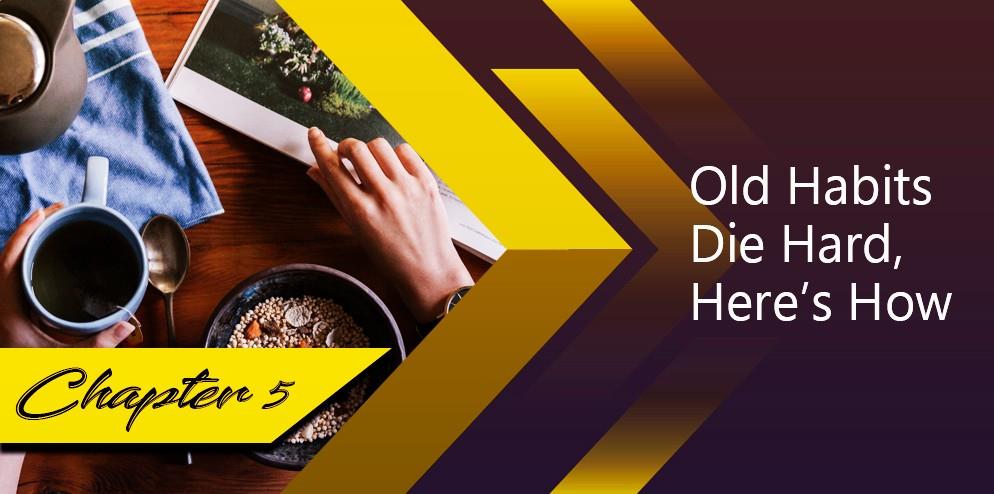
Building new habits is probably one of the hardest parts about beginning any new lifestyle. A vegan lifestyle is particularly challenging at first because you often go from not paying much attention to the ingredients in your food to having to do a lot of research to figure out what all those ingredients on boxes of processed foods are and whether or not they may be ethical or healthy.
Much of the time, going vegan is most easily achieved by cutting out these processed foods altogether and sticking to fresh fruits and vegetables and plant proteins to make up your daily meals. This can make going vegan much easier.
Regardless, starting new habits can be challenging, and sticking to a vegan diet may prove to be difficult. Especially if you have an emotional attachment to certain foods. But that doesn’t mean you have to give up everything you love. It simply means that you have to get used to making compromises and learn to be happy with the replacement ingredients while maintaining loyalty to the foods as a concept.
Most of the time, building a new habit takes a fair amount of time. Some people may pick certain things up more easily than others, and that is okay too. One person may struggle on a weekly basis with a vegan diet or temptations of foods that contain animal proteins or meat byproducts, while others may be able to quit cold turkey. Either of these is okay, and it doesn’t make one person more or less vegan than the other to simply have cravings or meals that they miss deeply.
Food is a very personal topic, and judging others for their relationship to it is unproductive and cruel.
Instead, focus on the ways you can begin to build healthier habits for yourself and things you can do to stay on track with your vegan diet.
One of the best things you can do to begin building your habits is to maintain accountability to yourself. If you want to be vegan but you know that you are still cheating with foods that are not vegan, make sure you are owning up to it. Maybe you can tell a friend or family member who is compassionate to your goals about your conflict and air it out. you can ask them to hold you accountable and ask you questions such as, “what about your vegan lifestyle?” or “is that a vegan thing to do?”
This way you are forced to confront the consequences of your actions head on and take responsibility for the fact that the choices you are making are not in alignment with your goals.
Another thing to do to make sure you are building habits that will last is to start slow. Rather than trying to make a lot of big changes at once and overwhelming yourself, maybe it would be better to try to make gradual changes. This can be especially helpful when it comes to your diet. If you are not familiar with a lot of vegan food options, then suddenly cutting yourself off of meat and trying to do a lot of new meals at once can be very difficult. If you want to make choices that will stick, you have to make sure that you are not overdoing it.
Instead of transitioning overnight, you may find it helpful to begin to integrate new positive habits in a more gradual manner. Start with one night of veganism a week, for example, then steadily get into the habit over time until you are doing it every day without the pressure of trying to make sure that you are doing it right without having any idea what kinds of foods you enjoy eating. By incorporating foods that are vegan into your diet without the pressure, it can make it a lot easier to stick with it long term if you fear this may be the kind of thing you struggle with.
Building healthy habits takes time, so another thing to remember is to be patient with yourself. Allow for mistakes and slip ups. Be kind to yourself and remember that there is no timeline for something like this. It is a personal goal and it is up to you how to approach it. Don’t let anyone else shame you or make you feel bad if you are not going based on their timeline. You are doing this for yourself, and ultimately, for the animals. So do it right and don’t shame yourself!
If you find yourself craving meat a lot, you can also attempt to fine-tune your habits by interrupting cravings and other thoughts about meat with different thoughts. For example, if you find yourself thinking about how delicious a steak might be right now, perhaps you could interrupt that thought with a quick fact check.
Look into the realities of slaughterhouses and factory farms. Condition yourself to associate the negative realities of the meat industry with your food choices.
Soon, you may find that meat doesn’t seem quite so appealing anymore!
It can take anywhere from seven days to a month to build a new habit, so be patient with yourself throughout the process. Remember, eating meat is probably something you have done the majority of your life. You aren’t going to suddenly stop wanting things that were enjoyable at one point. You are making this choice for personal reasons, so don’t worry about these cravings. They are natural and many people never get over them. But in working on building healthier habits, you may find that the cravings are not as bad as they once were.
In fact, eventually, you may come to love the new foods in your diet so much that you hardly even think about meat anymore. Veganism is a way of life, and this new lifestyle can be incredibly rich and rewarding. Surrounding yourself with other people who share your mentality is another great way to hold yourself accountable and stick to your guns. They can often give you little tips and tricks to help you along in your journey, and sharing your experiences with others can make it a lot easier to get used to the changes you are going through!
Just be patient with yourself and remember exactly what it is about veganism that you find so appealing. Don’t talk yourself out of something because it is overwhelming at first to make such drastic changes in your life. Instead, take it one step at a time and find peace and confidence in knowing you are on the path you chose for a reason!
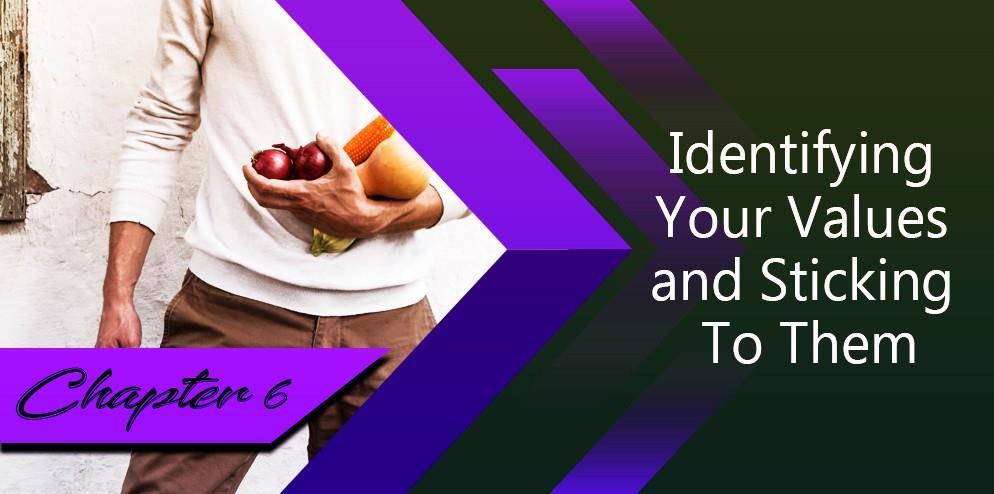
Veganism is very much about finding your morals and sticking to them.
Sometimes, we don’t know what we are passionate about until we see something that we realize we do not want any part of.
Veganism often hits us hard as a way not to participate in the deliberate slaughter and sometimes torture of innocent animals.
Or maybe it’s about holding corporations accountable for their practices and creating more rigorous guidelines for them to follow. Perhaps going vegan is not just about the animals for you, but for the environment as well. Maybe understanding how factory farms can pollute the water supplies and create extreme deposits of methane gas that can wreak havoc on the ozone layer is as much of a motivation as preventing the needless suffering of animals to serve a purpose that isn’t entirely necessary in today’s day and age.
Back when surviving was difficult, humans as a species utilized animals in many ways to ensure their survival. Things are not that cut throat anymore. We have many options now that once didn’t exist, and a better understanding of the way that nutrition works. If we don’t want to eat meat, for whatever reason we choose, we don’t actually have to eat meat. While it is of course important to look after your health and make sure you are getting the essential vitamins and minerals to ensure your body is functioning to the best of its ability, the same is true of anyone. People eating a meat-based diet have to watch their health as well. It is easy to get high cholesterol and other issues that can cause heart attacks, which are the leading cause of death in the United States alone.
To make going vegan the most valuable for you and ensure the likelihood that you are going to be able to stick with it, you need to sit down and really think hard about what it is you would stand for. If someone looked at you and asked you what you believe in this world and what you are doing to back up those beliefs, what would you tell them? Are you on the road toward being the person you want to be? Are you doing things that make you proud? Do your choices reflect your values?
It is one thing to agree with something morally. It’s quite another to see the implications of your choices and avoid a life of hypocrisy. For example, if you agree that sweat shop conditions are horrible, but still wear clothing that is produced in sweat shops, it is clearly not enough of a value to you that you are willing to sacrifice comfort and convenience for products that are affordable from sweatshops.
On the other hand, if you know sweat shop labor conditions exist, and you do research into brands that do not support it so you can wear clothes comfortably knowing that you are not making it possible for sweat shops to continue operating, at least not with your money, then this is clearly a value you care about and you are going the distance in practicing your values. Money talks.
Watching documentaries is a good way to get informed about the way the world works, and business practices that make products easily accessible but that cut corners and often hurt people, and animals, and the environment, in the process.
You can learn a lot about the way things are run and how you can make a difference by speaking out about it and boycotting the businesses you know are guilty of things that you do not agree with. Every little bit can make a difference, and finding fair trade goods and living a healthy, ethical lifestyle is possible.
Once you know what it is you stand for, then you will start to learn more about what it is you are against. If you are willing to sacrifice conveniences and other things that are comfortable to you in your life in order to stand by your ethics in every possible way, that strength of character will be something you will always have to fall back on. It feels good knowing the choices you are making are not indirectly causing harm to others or the world around us, and it makes it that much more likely that the choices you make will have a lasting positive impact, on you and on your community as a whole!
So sit down, get out a sheet of paper and a pencil, and get to work in identifying your personal values. Once you have done that, you can watch documentaries or look online for ways that you can begin really applying your values to your life.
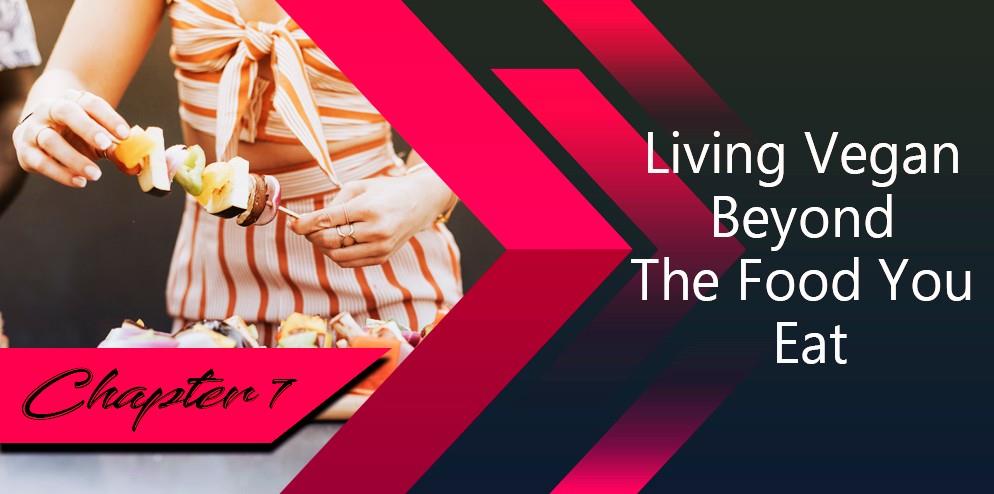
Many people may not realize that living a vegan lifestyle is something that goes far beyond the menu you allot yourself. A vegan lifestyle not only looks for vegan foods, but also vegan products. Animal testing is a horrific practice, and most vegans are very knowledgeable about how it works. There are many ways that animals are mistreated all for the sake of fashion and vanity, despite there being alternative approaches to making sure that products work before they are distributed to the masses.
The realities of the conditions animals live in are unbelievably cruel in many cases. Eye makeup is often tested on rabbits, and if enough rabbits die, they continue to do the same test over and over again until the allotted number of rabbits survives the test. This is just one small example of why animal testing is so bad. And vegans will usually go out of their way to make sure that the products they use in their lives are not associated with such cruelty.
There are several lists online that can be helpful when discovering what products are considered vegan friendly. You can also look into your companies using this method and learn what their stance happens to be when it comes to animal testing. You have to be conscious of all sorts of things if you want to live a vegan lifestyle.
Another example of something that vegans give up is wearing leather. Leather comes from the skin of dead cows, and it is strictly not vegan. This can sometimes make it frustrating to find things to wear or handbags and purses to carry, or even shoes that look and feel the way you might want them to.
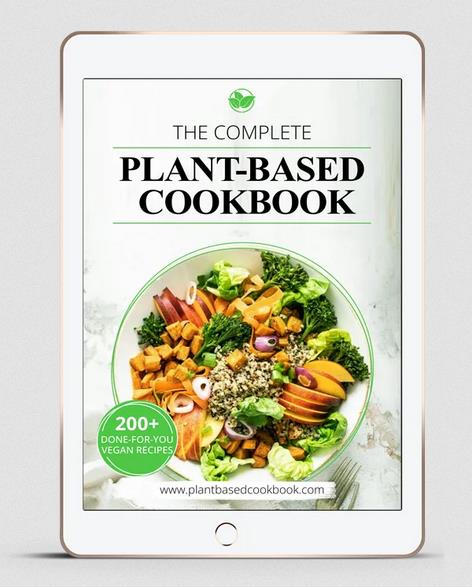
But if you are serious about living a cruelty-free lifestyle, a vegan will generally oppose of animals being killed and utilized in any way for human purposes. That means looking into different materials to wear for shoes or clothing, or to use for their handbags.
Click Here to Get it
It is easy to find other alternatives that look good and serve the same purpose as leather products. While some fake leather products exist, they generally don’t last as long and can get worn out easily. A better compromise to make in these cases might be an investment in a different material, such as cotton or canvas. They can also look great and do not come with the guilt of knowing that it once used to be a living thing.
A vegan lifestyle includes many of the choices that you make during daily life.
There are always going to be ways around using animals and animal byproducts.
But one thing you should be wary of is greenwashing. Greenwashing is what a company does when it wants to market itself as being environmentally or ethically friendly without actually meeting the requirements to be defined as such. They will sell products for a greater value than they are worth with the promise that they are made with humane practices, when in reality they are no different from the other products they sell and have no basis to be defined as
“green.”
While it is an unethical practice, it is one that they can benefit greatly from. The best word of advice in this instance is to research very carefully before buying into the marketing hype of one product or another. Companies know that people want to buy green and to be conscientious of the animals and the environment.
They have found a loophole and a vulnerable market who is willing to pay more for better products that align with their principals. Do not let yourself be fooled by this clever, albeit disgusting, marketing gimmick.
Many places hide their less ethical practices from the public, so it often comes down to vegans who are dedicated to going undercover to see the realities of the deplorable conditions of the places that are abusing animals. There has been video uncovered of members of a Kentucky Fried Chicken slaughterhouse abusing chickens by throwing them against walls and causing them needless pain before their execution. Many people boycotted KFC after this footage was uncovered.
You can find all sorts of grisly information if you look. There are always people out there working to improve society and going places where it is unpopular for them to go so that other people will know the horrifying truth and seek to create a better world by withdrawing support from companies that allow such horrifying practices. A simple internet search can lead you to these reports, or you can watch documentaries or speak to other vegans about the things they know. Sometimes, those in your community can be an invaluable source of information, especially when you are still new to a vegan lifestyle.
Fortunately, there are many people out there who understand how horrible it is to allow such bad conditions for animals and the environment, and they work hard to bring products into the world that do not have any negative impact on animals. You can also research these innovative companies and invest your time and money into their products. Just beware of greenwashing by making sure that the companies you wish to support are making specific statements about what they do and do not do, and avoiding anything that is too generalized or outdated. Again, asking around the vegan community for tips on which companies are the best to support can be invaluable.
Most of the time, investing in local markets is a great option. You can investigate the origins of your products yourself while supporting your local economy. This helps to create jobs in your area and keeps businesses afloat amid all the commercialized branches out there that are monopolizing our society and bringing
large scale consumer goods from places that may not care how animals, people, or the environment are treated. Not only that, but it can be very rewarding to form a relationship with a local business and support someone you genuinely care about.
Once you have found the companies that make the products you want to support, then you will truly be living a vegan lifestyle. A good way to find quality products is by turning to your community. If you know other people who live a vegan lifestyle, ask them the kinds of things they buy and what their favorite companies are and why. You may end up getting a lot of great advice and a good direction to begin with. otherwise, doing research is a great option, and testing the products for yourself through trial and error can also help you determine what is right for you in the long run.
Whichever companies you decide to support, make sure that you are happy with your choice and that it helps you to feel confident and happy knowing that you are spending your money in a worthwhile manner rather than in supporting practices that you find unethical or cruel. That is what living a vegan lifestyle is all about!
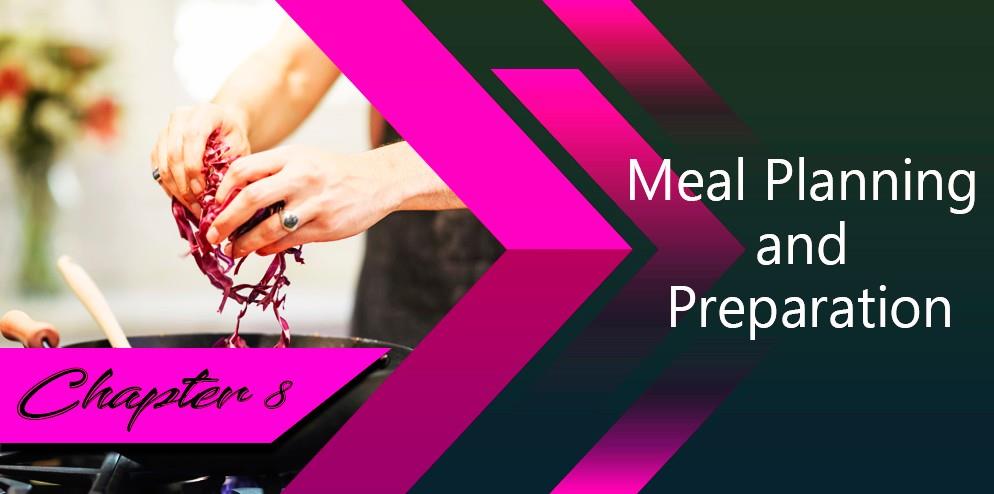
Meal planning is one of the most difficult parts of any new diet. If you are having a hard time finding vegan foods that you like, this will be extra tough for you.
But if you already have an idea of the kinds of foods you want to eat, it may take some of the painstaking work out of it for you.
Before you begin planning out your meals for the week, it helps to have a good idea of the vegan foods you like enough to eat on a regular basis. If you are entirely new to the vegan lifestyle, starting out with a whole list of meals that you have never made before is going to prove to be fairly overwhelming. You want to make a meal plan that you can follow, not one that is going to give you anxiety and stress because you don’t know where to begin, or because you have to start cooking brand new meals every single day that you have never tried before.
Before getting a meal plan started, instead consider testing the meals gradually until you have a good idea of what it is that you like the most as far as vegan foods go. Learn what the different types of protein sources taste like and how much of it you need during a meal to feel satiated. Experiment with the sides and fruits and vegetables so you know what staples to keep on hand during the week.
You can even invest in some frozen fruits and vegetables to keep around just in case you run into a day where you no longer feel like cooking and you just want something simple and easy.
That is a key to creating a successful meal plan. You have to count on being human and having at least one day a week where you just are not feeling the whole kitchen thing. Have a few easy meals in mind for those situations so that you are still eating something healthy, but something that will accommodate you for those times when it seems like cooking a new meal will just be too much.
Once you are familiar with the vegan foods you want to incorporate into your diet, then is the best time to begin working on your meal plan. If you have a good idea of what works and what doesn’t work for you, you will get through it relatively quickly. You are probably going to want to use a planner to begin with.
they make some that are specific to meal planning, so investing in one of these may prove to be very beneficial to you.
When you are creating your meal plan for the week, it is important to take into account the foods you already have available to you. This is especially true of fresh fruits and vegetables, as they will expire quickly and then no longer be usable. When eating vegan and living a vegan lifestyle, it often helps to think in as budget-friendly a manner as possible. so take into account the foods that you already have at your disposal when you are making your meal plan and find a way to incorporate them at the beginning of the week so that you are not wasting money buying foods that you are not going to eat.
Once you have taken stock of the foods you have to use, then you can also think about ways you can make foods that will last throughout the week. For example, perhaps you could make a large salad so you will have it at your disposal throughout the week without having to make a single salad every day or however often you like to eat salad. You can also take the time at the beginning of the week to prepare ingredients so that when it comes time to cook them, they are already prepared. You can cut up fresh fruits and vegetables for easy access and store them in air tight containers for example so that you can easily cook them or throw them into your meals. This is a great way to help you save time and energy so that planning and preparing your meals throughout the week is less daunting.
Keeping this simple tip in mind, creating a meal plan may become that much easier. Consider keeping your foods easy to access for when it comes time to cook, and cooking will go by much faster and ultimately make the process of planning your meals that much easier.
Once you have an idea of the kinds of foods you want to eat on a regular basis, you can break our meal plan into separate meals and snack times throughout the day. If you are the type to exercise regularly, you may want to schedule a time post workout for you to eat a snack that is enriched with proteins. Drinking a lot of water is also a good idea for proper nutrition, and this will be covered more in the next chapter.
In any event, take your routine into consideration and try to be realistic about when you will have the opportunity to cook and prepare the meals you need throughout the day. Take this chance to consider what you can prepare ahead of time for easy access, snacks generally being the simplest things to have prepared ahead of time. Consider the kinds of things you like to eat in the morning for breakfast, what you enjoy most for lunches, dinners, and everything in between.
If you are new to veganism and have not invested in a cookbook yet, this is the time to do so. You can look through these recipes and find replacement meat alternatives and options for meals that you once enjoyed with meat in them. If you find that you are still hungry after switching from meat to vegan alternatives, you may be lacking in vitamin B12 and protein, so attempt to include more of those things in your diet. Take a multivitamin every single day to ensure that you are getting enough of the essential nutrients you need to survive and live a healthy lifestyle.
You may find that it is also helpful when planning your meals out to think about the time it will take to prepare the meal and cook it. If you have ingredients you can prepare before it is time to cook it, this can cut down on the time it takes to get yourself situated throughout the day. If that isn’t possible, it will at least help you to be able to plan around the times you will need to be cooking and preparing the meals of your choice.
And don’t forget, there are simple and easy vegan options out there too. You can have a peanut butter and jelly sandwich for lunch. It doesn’t have to be some huge complex meal full of exotic fruits and vegetables to count as vegan. There are plenty of things you can still eat that you loved before you cut meat out of your diet.
Take some time out to think about the foods that you don’t have to sacrifice and include those familiar staples into your diet and meal plan as well. Veganism isn’t about sacrificing the things you love to do what is right for the animals, although sometimes that is a big part of it. It is about living your truth and showing support to a cause that many people turn a blind eye to. You don’t have to be miserable to be healthy and happy with your lifestyle choices. So think about the things that you can still have and keep them in the forefront of your mind when you are creating your meal plan.
For the things you loved but are not vegan, you can find alternatives. There is boxed vegan macaroni and cheese, many varieties of which even include gluten free noodles. You can find vegan deli slices and vegan cheese alternatives for sandwiches. You can still have pastas and sauces and make simple adjustments, like instead of chicken parmesan you can have eggplant parmesan with vegan cheese rather than eating non-vegan cheese. Work on finding alternatives to the meals you most enjoy first and foremost and then creating your meal plan should be easy.
The hardest part about a meal plan is sticking with it. You have to make sure you are creating a regimen. This routine should include a shopping list for the weekly foods you have to buy to prepare the meals of your choice. It should also include setting aside time, realistically, to make sure you are able to cook
and prepare ingredients for those meals. Even if that means cooking the night before you have a long work day so that when you get home you can have the meal you had planned, even if it’s leftovers.
You may also find it very beneficial to look into fruits and vegetables that are in season. Buying foods that are in season is a great way to save money and get more value for your money. If you know of places locally that sell fresh foods from farms, it is often possible to get huge bulk discounts tha will help you to save a lot of money in the long run. You can often pay to go out into orchards to collect fruits like apples and peaches for a fraction of the money it would cost to buy that amount in the store. If you find that you have a lot of something, you can also look into great ways to preserve the foods for use in the future. A lot of vegans have become interested in canning foods and making their own jams and jellies and pickled, fermented foods, which have vast health benefits and probiotics that help to maintain gut health.
Something else you can do to make meal planning easier is freezing food. There are plenty of meals out there you can make and freeze for later use. Soups and stews are a great example. You can prepare foods in bulk for use throughout the week, which is budget friendly and especially useful for those with a busy work schedule. It is very important to be able to work in healthy meals, so on a day off or a day you find that you have some spare time, it would be very beneficial to start preparing foods you can freeze for later. Make sure they are foods you actually like and don’t mind heating up, otherwise they will take up space in your freezer and never leave.
Give yourself a timeline to eat the meal by to make sure everything stays fresh and avoids freezer burn. That way you can avoid needless clutter.
Overall, meal planning is something personal but useful. If you know what you are going to eat, it can eliminate a lot of food anxiety and stress. Especially if you have as much prepared ahead of time as possible. You may also want to take into consideration whether or not you are cooking for yourself and children or other family members or friends. Not everyone is going to want to follow you in your vegan lifestyle, but there are some foods that you can incorporate with meat products as well if you are still using them to feed someone else. For example, you can include your salads and vegan sides with animal proteins for just as delicious a meal, and it can still feel like a bonding time through food because you are still able to share something with those you care about.
Yes, some people will still find themselves cooking meat while living vegan, and that is okay. You have to do whatever is best for you in your own life and anybody who judges you for that clearly doesn’t understand what it means to be compassionate. If you are compassionate toward others for their food choices,
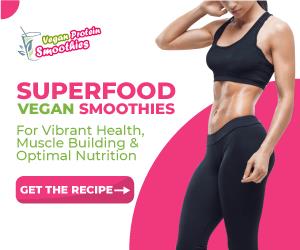
they are more likely to be compassionate back toward you! A vegan lifestyle isn’t for everybody. It can be difficult and costly and time-consuming if you find that researching everything in your life is difficult. Some people enjoy it more than others. And that is okay.
But as long as you are living your truth, then there is nothing anyone can do to fault you for it. Let them judge. Either way, you know how to prepare a meal plan and what to do to ensure that you are being as budget friendly as possible while embarking upon your new vegan lifestyle.
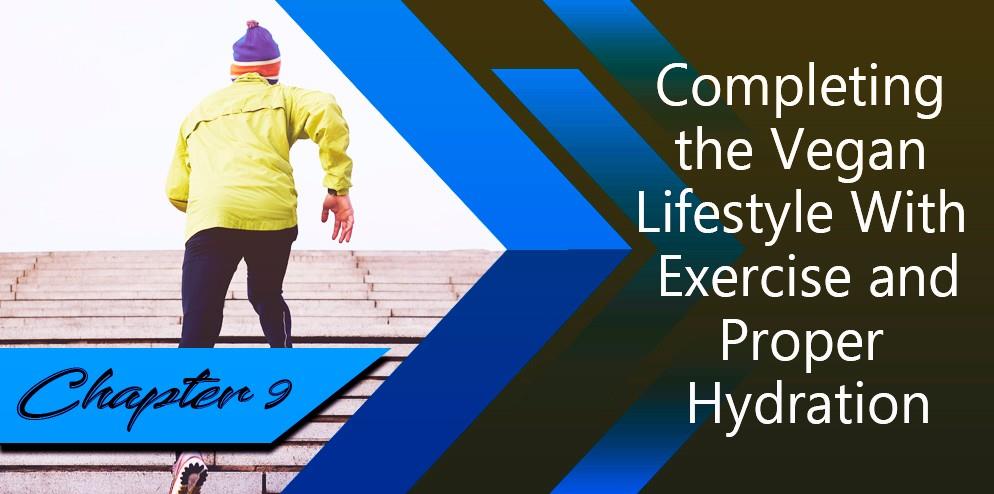
We have covered everything from the essential foods to eat to canning and freezing foods for the future. Now it is time to think about the most important aspect of the vegan lifestyle: compassion. Most of us are lacking in compassion for ourselves. We think about everyone else and put others first.
We may put the welfare of animals and friends and family before we put our own needs, happiness, and well-being. It can be very easy in today’s day and age to completely overlook the importance of eating healthy foods and getting the proper nutrition. It may be even more difficult to make the time that is necessary to exercise and hydrate properly.
If you find that these things may pose a challenge to you, there are a few questions it may be important to ask yourself. Why do you not feel like you are important enough to take care of? Did you go through something in your life that led you to believe that you do not matter? How frequently do you find you put your needs off to help others? Why is it hard to put yourself first?
One thing many people don’t understand, because it is not often taught, is that it is not selfish to put your needs first. In fact, it is often recommended that to help others, metaphorically, you have to put the oxygen mask on yourself first. This refers to a plane crash, but the idea is the same. You have to be able to function as a strong and independent entity before you will have the strength to be able to lift others as well. Even if you don’t have intentions of taking care of other people, your health should be your first priority. Everything you do early in life is eventually reflected back at you.
As you age, your body begins to show signs of wear and tear, making an already difficult situation more uncomfortable, and often painful. You want to make sure that you are making choices that you can be proud of and that will help you function at your peak potential when everything else begins to slow down.
That is why exercise and hydration are so important. Showing compassion to yourself is a staple of the vegan lifestyle, and you should always take into consideration the things that will help you thrive and feel good. Eating right is one big part of it, but you also need to make sure that you are getting exercise and proper hydration.
A lot of people are concerned that because of a lack of animal protein, you will not be able to build and maintain muscle mass the same way you would if you were eating a diet that included meat and animal byproducts. While in some cases this can be true, it is more likely that you will just have to spend more time making sure that you are getting what your body needs and taking care of what you already have. Drinking water regularly is essential in maintaining good muscle health. You want to make sure that you are drinking plenty of water while you are getting exercise, and especially after when your body is more susceptible to the things that you are putting into your system. Eating more protein after you work out is another great way to ensure you are contributing to your muscle mass rather than depleting from it. Having a snack of water and peanuts for example is a good way to end a workout session, as it will benefit you in your need to maintain good muscle health.
You may also want to include a banana during this snack. Bananas are high in potassium, which can help your body to retain water and utilize it properly. They also have high amounts of protein and can be a great staple in any diet.
A lot of people don’t think about how important proper hydration is in maintaining a healthy lifestyle. But without adequate amounts of water, all of your cells suffer.
You are also prone to have cognitive issues and slower reaction times if you are dehydrated. Not only that, but you will lose flexibility and ultimately have a higher likelihood of urinary tract issues. Without enough water in your system, you can also become constipated and have a more difficult time in passing the toxins that accumulate in our bodies, which can lead to even worse issues with your kidneys and other potential infections that could easily be avoided if only you are taking better care of your body.
Not only is it very important for you in building muscle mass, but staying properly hydrated is a great way to help prevent over-eating. A lot of people are very used to the heavy filling meat dishes that they were raised with and find themselves feeling puckish and hungry when they are left eating a vegan diet. If you are staying properly hydrated, this can be far less of an issue. Making sure to eat plenty of protein and drinking water will help you to maintain your weight levels without suffering or feeling overly hungry.
Exercise is especially important for your well being, whether you are vegan or not. You want to be able to get rid of the excess toxins in your body, which is something that can be done through sweating and working hard. You also want to maintain a high confidence level. A lot of the world does not agree with veganism and will take great pains to put you down about it. You want to make sure you are not going to take those comments personally or allow it to affect you.
Exercise is a proven way to help build confidence and maintain a positive attitude. It releases endorphins and feel-good chemicals in the body and brain so that even when you are facing adverse circumstances, you are more likely to be able to handle them with pride.
Not only that but everyone envisions a vegan lifestyle as healthy and conscientious. There is no good reason to neglect your health. Exercising is something we all need to do to maintain great shape and to feel productive and happy in our lives. If we are neglecting our bodies, it can lead to negative thoughts and sometimes even depression. When we are exercising, it is easier for us to stay active and motivated to fight for the causes that we believe in the most.
If you are hoping to live a vegan lifestyle, including exercise and proper hydration is a must. You want your good vibes to go beyond just the food you eat. You want to be able to embrace every new day with a renewed sense of why it is good to be a part of the earth and why it is important to help those who can’t help themselves. Vegans become the voice for the voiceless, so make sure that voice is strong by taking care of yourself to the best of your ability. Then you can tell the world exactly what you think of it without fear, because you will feel the power of your conviction as deeply as it can possibly get. You can do it!
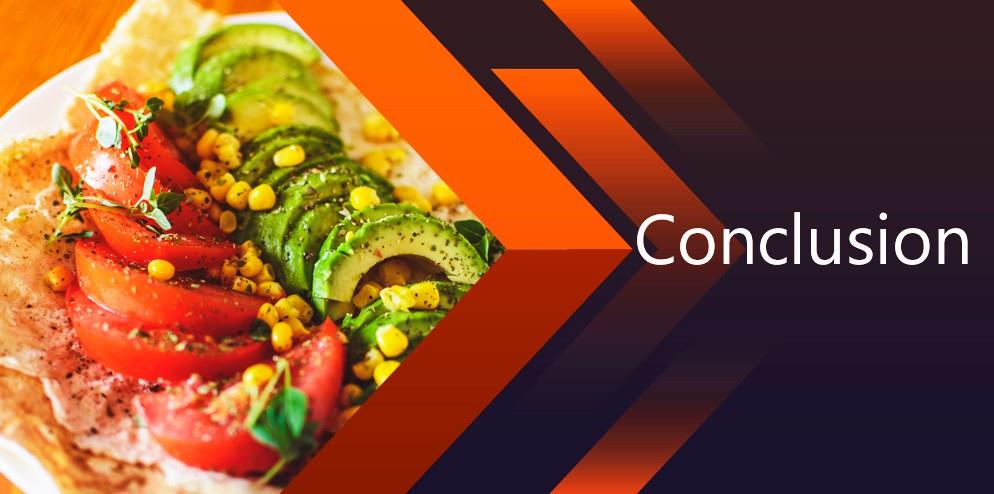
A vegan lifestyle may not be for everyone, but for those it resonates with, there is generally no other way to live. Being vegan goes far beyond just the foods you eat. It is a way of life, complete with a shift in perspective that makes it nearly impossible to support anything that does not align with your morals.
While this may not set well with people who fear persecution for their lifestyles, those who are able to see you for who you are and understand that your stance comes from a place of compassion and concern will be enriched by your choices.
It provides them with an opportunity to learn more about the world around them and the companies that provide us with most of the goods we are used to today.
Vegans have it rough at times. It can be hard to be the only one in the crowd who is saying no to something. But there are many people out there who feel and believe the same way you do, even if it sometimes feels like you are standing alone. It is important to speak your truth, even if it is unpopular. Even if it feels more comfortable to stay silent.
The animals have no voice. Vegans have to be their voice for them. It is a job that most vegans take very seriously. Even if you don’t end up being an outspoken advocate who will go into a restaurant demanding vegan options in front of all of your friends, the choices you make with your money count. Taking support away from businesses whose ethics you don’t agree with not only helps the animals, but it also helps you to feel better about yourself because you are living in alignment with your values. And many people can’t actually say that.
That gives vegans an advantage in a world that seems consumed more and more with quantity over quality, and companies that are willing to compromise the
health and safety of humans and animals alike to make a profit.
Vegans can make the choice not to put their money into a system like this, and instead, support local businesses and fair trade dealers and other entrepreneurs who understand the importance of a vegan lifestyle.
All of us have the choice to live within our own morals and to set our standards as high as we want them. Not all of us know how to begin. But by using this guide to living ethically, you will soon be well on your way to living a vegan lifestyle.
It can be hard to stand up for what you believe in. especially when it is something unpopular most of us are used to eating meat and are unhappy with the conflict that going vegan can cause. But it is always worthwhile to do what feels right.
Even if it is unpopular.
Now that you have the basics down, you should have everything you need to begin living your vegan lifestyle today!
Click here to Take the 1 Month Vegan Challenge Now


















